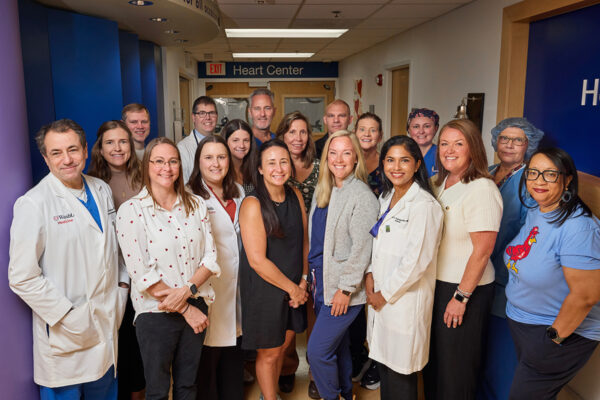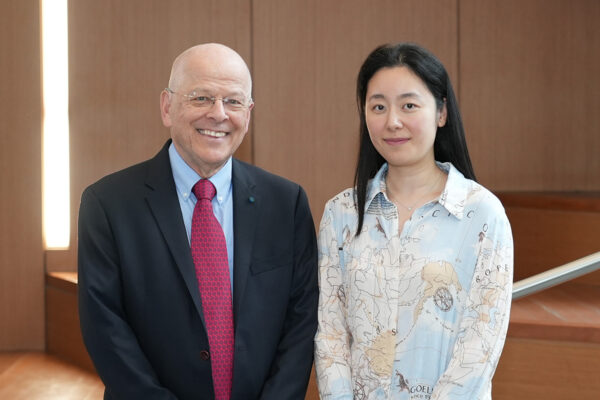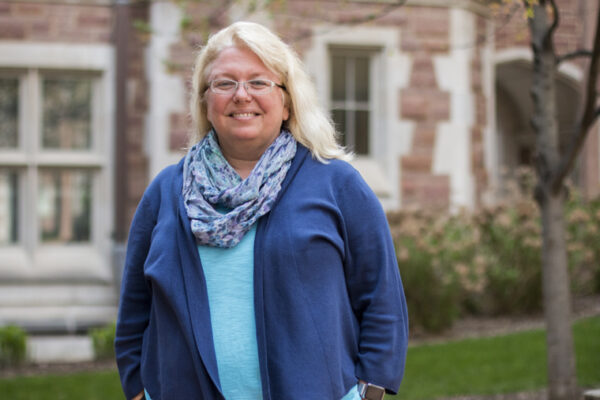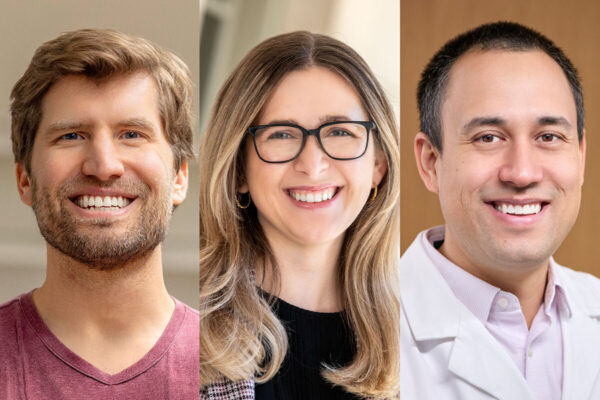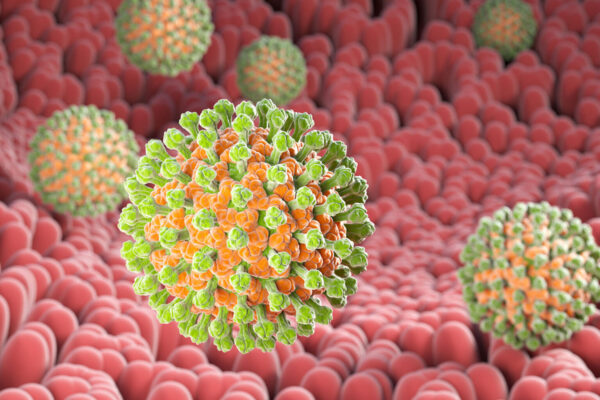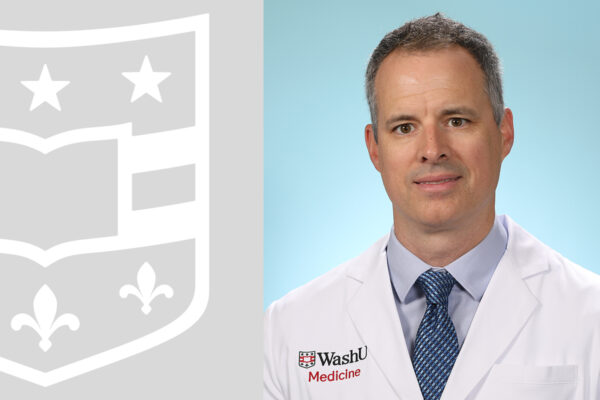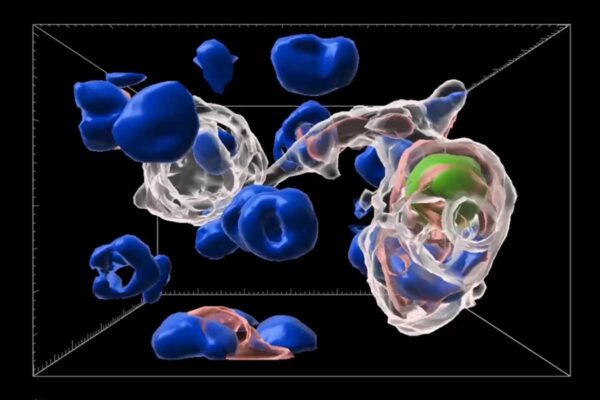Puram named head of otolaryngology
Sidharth Puram, MD, PhD, a distinguished physician-scientist specializing in head and neck cancer surgery, has been named the head of the Department of Otolaryngology — Head & Neck Surgery at WashU Medicine.
Team performs first pediatric ‘domino’ partial heart transplant in Midwest
The St. Louis Children’s Hospital and WashU Medicine Heart Center has become one of only eight programs in the nation to perform a rare, lifesaving procedure in which one donor’s organ is transplanted into a patient, who then becomes a donor for another patient.
Breast cancer startup founded by WashU Medicine researchers acquired by Lunit
Prognosia, a biotech startup that harnesses AI-driven software to analyze mammograms to improve breast cancer risk prediction, was created by Graham Colditz, MD, DrPH, and Shu (Joy) Jiang, PhD, both at WashU Medicine.
Several faculty receive NIH MIRA awards
Several biology and medical researchers at Washington University in St. Louis have earned prestigious awards from the National Institutes of Health (NIH).
Barch earns lifetime achievement award from psychology group
Researcher Deanna Barch, a professor at WashU, has received a lifetime achievement award from the Association for Psychological Science.
It’s never too late for those with cancer to quit smoking
Quitting smoking significantly increases survival time in cancer patients, particularly those with advanced-stage cancer, according to a study of an innovative smoking cessation program at WashU Medicine and Siteman Cancer Center.
WashU researchers honored with NIH Director’s Awards
Three WashU investigators have been recognized with prestigious awards through the National Institutes of Health (NIH) Director’s High-Risk, High-Reward Research program, which supports unconventional approaches to major challenges in biomedical and behavioral research.
Researchers find key to stopping deadly infection
New research from WashU Medicine identified a key enzyme that enables rotavirus to infect cells. Disabling this enzyme prevented infection, suggesting new treatments against rotavirus and other pathogens that rely on similar mechanisms.
Circadian clock protein linked to brain aging, neurodegenerative disease
WashU Medicine researchers led by Erik Musiek, MD, PhD, discovered in mice that inhibition of a protein that controls the daily cycling of metabolism and inflammation decreases neurodegeneration in Alzheimer’s disease.
Body’s garbage-collecting cells protect insulin production in pancreas
WashU Medicine researchers found that immune cells that dispose of the body’s cellular debris can protect insulin-producing cells and prevent Type 1 diabetes in mice.
View More Stories

